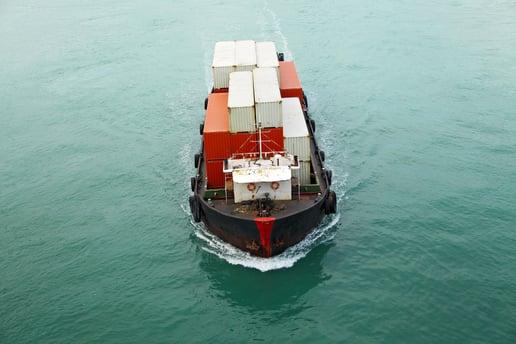
Expanding your startup into foreign markets is a thrilling endeavour, but international shipping can get choppy quickly. Navigating the labyrinth of regulations and logistics can be daunting for even the most seasoned entrepreneur.
This guide outlines the key considerations for startups dipping their toes into the world of international shipping. It will help you chart a course for smooth sailing and avoid the common pitfalls that can sink your cargo before it even reaches the horizon.
International Shipping Regulations
The first step in any successful international shipping voyage is understanding the rules and regulations of your destination country. Every nation has unique import laws, product restrictions, required documentation, and duties or taxes. Failure to comply can lead to costly delays, hefty fines, or even the seizure of your goods.
It's crucial to research country-specific regulations, including those pesky Harmonized System (HS) codes used to classify products and determine tariffs. Consider enlisting the help of a customs broker, an expert in navigating the complexities of international shipping. They can ensure your shipments comply with all regulations, saving you time, money, and potential headaches down the line.
Calculating the Costs of Shipping and Duties

Shipping across borders isn't cheap, so factor in all the costs upfront. This includes the shipping fees and duties, taxes, and any additional handling charges. Your products' dimensions, weight, and value will influence the shipping costs. Most carriers offer online calculators to estimate these expenses, but it's wise to consult with a freight forwarder or customs broker for a more accurate picture.
Remember, some countries impose hefty import taxes, which can significantly impact your pricing strategy. To offset these costs, consider offering customers a choice of shipping options, from faster, pricier express services to slower, more economical alternatives. You may also want to explore shipping consolidators or freight forwarders who can negotiate better rates on your behalf, helping you keep costs in check.
Pick the Right Shipping Partners
Choosing the right carriers is critical to a successful international shipping strategy. Look for carriers with a reputation for speed, reliability, and excellent tracking services. When managing vehicle logistics locally or internationally, partnering with reliable car transport companies West Midlands ensures streamlined operations and peace of mind.
For startups shipping large volumes or bulk orders, freight shipping by air, sea, or land can be a more cost-effective option than traditional parcel services.
When it comes to freight shipping, consider the type of service that best suits your needs: Less than Truckload (LTL) or Full Truckload (FTL) for land shipments and Less than Container Load (LCL) or Full Container Load (FCL) for sea freight. Each has its own pricing structure and delivery times, so choose wisely based on your shipment size and urgency.
Control Shipping Times and Customer Expectations

International shipping inevitably takes longer than domestic deliveries, so managing customer expectations is crucial. Be transparent about estimated delivery times on your website, and communicate any potential delays due to customs clearance or other factors. Real-time tracking can also help keep customers informed and satisfied.
Set realistic expectations from the outset and proactively communicate with customers about potential delays. Consider offering express shipping options for those who need their orders urgently, but be clear about the additional costs involved. Remember, good communication can go a long way in building customer trust and loyalty.
Returns Policy and Managing Customer Service
Returns can be a logistical nightmare when dealing with international orders. Ensure you have a clear and customer-friendly return policy that outlines who is responsible for return shipping costs and how refunds will be processed. Consider setting up local return centers in major markets to streamline the process and reduce costs.
Finally, stellar customer service is essential when shipping globally. Train your team to handle inquiries efficiently, offer 24/7 support to accommodate different time zones, and consider multilingual support if you're targeting diverse markets. Even if shipping hiccups occur, excellent customer service can help you retain customers and build a positive reputation.
By carefully planning, paying attention to detail, and prioritizing customer service, startups can navigate the complexities of international shipping and successfully expand into new markets. With the right strategy in place, even the most daunting logistical challenges can be overcome, paving the way for growth and success on the global stage.